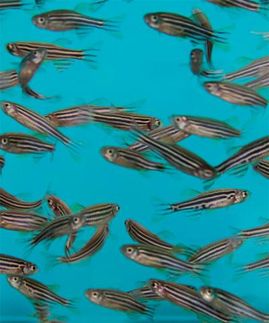How the age of plastic is affecting our hormones
Influence of the chemical substances bisphenol A, F and S on hormone synthesis and the hormone balance of the adrenal gland
Advertisement
Whether drinking bottles, cans, frying pans, receipts, textiles, water pipes, fire retardants or food contaminated with pesticides - in today's plastic age, we all come into contact with chemical substances. However, many of these synthetic substances not only bring benefits, but also pose numerous risks to the environment and our health. The pollutants are distributed worldwide in micro- and nanoplastic particles and appear in various ecosystems and food chains. The exact consequences and effects of chronic exposure on human health are difficult to assess.
Endocrine disruptors can affect health
In current research, the pollutants that we absorb through food, air or skin contact are referred to as "endocrine disruptors". This is because they are suspected of disrupting or impairing hormonal cycles and thus influencing growth and development, metabolism, reproduction, mood and behavior. The consequences include infertility, obesity and diabetes.
Lydia Kürzinger and Benedikt Pötzl from the Würzburg Department of Endocrinology and Diabetology have taken a closer look at the effects of bisphenols on hormone synthesis in the adrenal gland. Bisphenols are a group of chemical substances that are used in many plastics as plasticizers or stabilizers. In elaborate cell culture experiments, the assistant doctor and the doctoral student were able to demonstrate for the first time the influence of bisphenol A (BPA), F (BPF) and S (BPS) on the secretion of 15 different adrenal hormones.
Bisphenols inhibit cortisol, aldosterone and DHEA
When exposed to BPA, BPF and BPS, the two researchers observed significant changes in the release of essential hormones, with individual hormones being upregulated and others downregulated. "It can therefore be assumed that the bisphenols tested interact in a very complex way with the steroid synthesis of adrenal cells, which leads to the release of clinically relevant hormones such as cortisol, aldosterone and dehydroepiandrosterone, or DHEA for short, being inhibited," reports Benedikt Pötzl.
"The affected steroid hormones are involved in various systems of the human organism, for example stress response, blood pressure control, sexual differentiation and puberty," continues Lydia Kürzinger and summarizes. "Our work suggests that bisphenols, which can now be detected in almost all human samples examined, impair the precisely regulated hormone balance of the adrenal gland."
Bruno Allolio Adrenal Prize 2024 for Lydia Kürzinger and Benedikt Pötzl
For their work "Disruptive effects of plasticizers bisphenol A, F, and S on steroidogenesis of adrenocortical cells", which was funded by the German Research Foundation (DFG) as part of the Collaborative Research Centre/Transregio on the Adrenal Gland (SFB/TRR 205) and a fellowship from the Graduate School of Life Sciences (GSLS), Lydia Kürzinger and Benedikt Pötzl received the Bruno Allolio Adrenal Award 2024 at the 67. German Congress of Endocrinology (DGE) in Rostock, Lydia Kürzinger and Benedikt Pötzl received the Bruno Allolio Adrenal Prize of the German Society of Endocrinology 2024, endowed with 8,000 euros.
"The topic of endocrine disruptors is a very relevant and alarming problem of our time in view of the vast amounts of plastic and synthetic materials that are produced every year and are released into the environment in an almost unregulated manner, threatening planetary health. And the urgency is increasing, as the planetary boundaries for the introduction of novel substances have been far exceeded," comments Dr. Ulrich Dischinger. The senior physician and head of the routine endocrinology laboratory at the UKW initiated the research project and supervised it as a mentor.
Note: This article has been translated using a computer system without human intervention. LUMITOS offers these automatic translations to present a wider range of current news. Since this article has been translated with automatic translation, it is possible that it contains errors in vocabulary, syntax or grammar. The original article in German can be found here.





























































